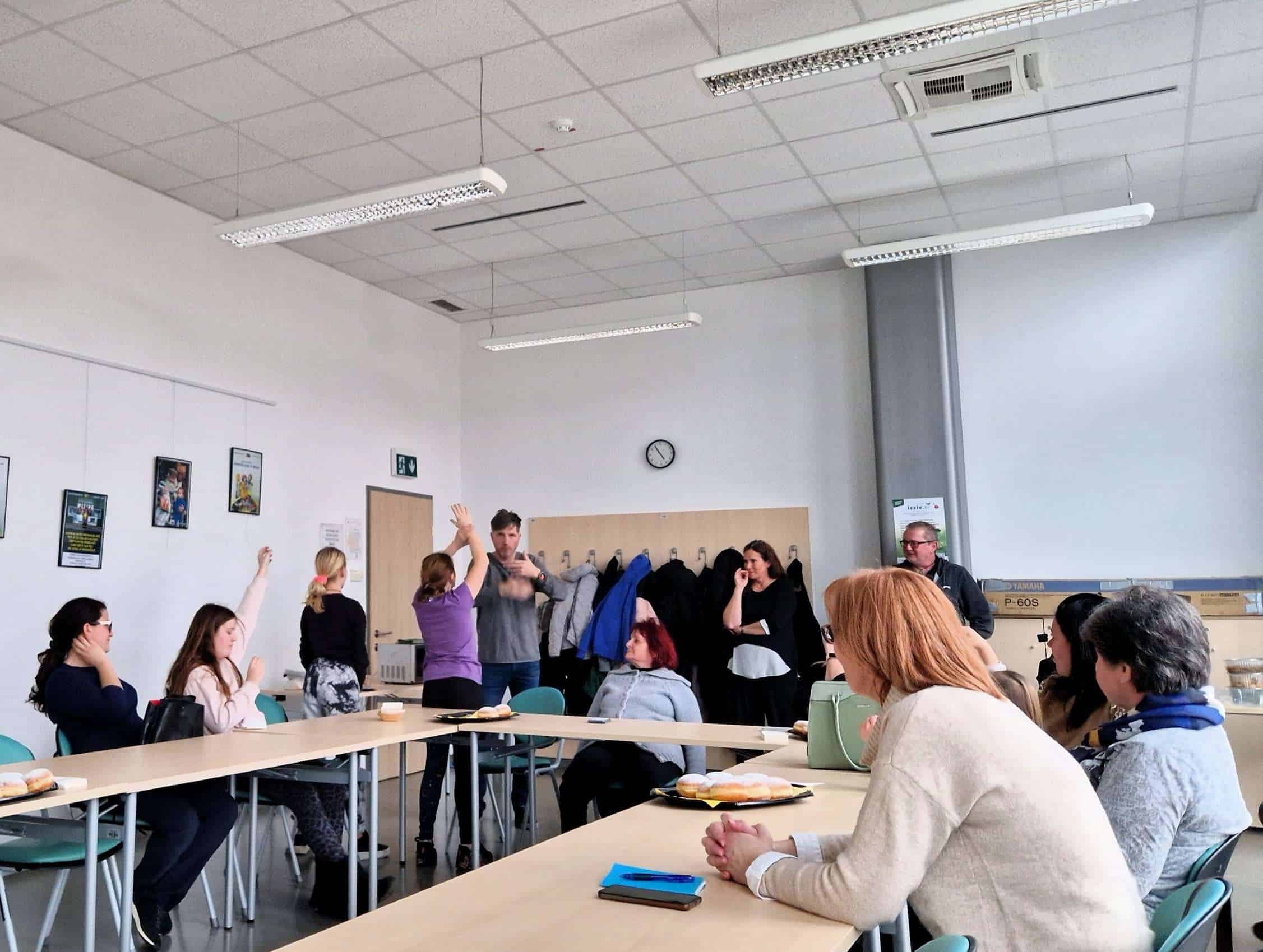Waste Cooking Oil – A Harmful Waste or a Valuable Resource?
As part of the European ECOLE project (Interreg Alpine Space), partners from Italy, Germany, Austria, Slovenia, and France are working together to promote the circular economy in industrial zones. The Regional Development Agency of the Ljubljana Urban Region (RRA LUR) has taken the lead in exploring new circular opportunities in the Industrial Zone Zalog. By connecting local businesses with the community, RRA LUR has identified an often-overlooked resource with great potential—waste cooking oil. This valuable waste can be repurposed into biodiesel, soaps, lubricants, paints, varnishes, or even scented candles. However, a systematic collection system is still lacking. To address this, RRA LUR is developing expert groundwork for a pilot project aimed at establishing a structured collection system in Zalog.
From Industrial Zones to Eco-Industrial Parks
Through the experience of ECOLE project partners and in-depth analysis of circular economy practices, it has become clear that industrial zones can transition more effectively into Eco-Industrial Parks if they are supported by a dedicated management entity. Such an entity optimizes services and fosters collaboration among businesses to achieve a common goal—reducing the carbon footprint. Industrial symbiosis plays a key role in this transition, enabling companies to share resources, including logistics services and energy solutions like waste heat reuse. A prime example of this approach is found in Slovenia, where Atlantis Water Park in Ljubljana benefits from waste heat generated by the nearby Aquafil factory, which produces sustainable “eternal” nylon. However, a fully circular management model in industrial zones has yet to be implemented in Slovenia.
Waste Cooking Oil as an Opportunity
RRA LUR recognizes that fostering the circular economy in industrial zones goes beyond optimizing production—it also involves engaging the local community in sustainable practices. In the Industrial Zone Zalog, RRA LUR has identified a unique circular synergy between businesses and households: the collection of waste cooking oil. This material holds significant value, particularly for biodiesel production, yet Ljubljana currently lacks a structured collection system. Encouragingly, the local Polje District community has expressed strong support for such an initiative.
Zalog is home to two key companies that could facilitate this circular initiative: JP VOKA SNAGA, the official household waste oil collector for Ljubljana and ten surrounding municipalities, and KOTO, a company that processes waste oil into biodiesel. RRA LUR is now developing the technical groundwork for a pilot project that would enable households in Zalog to properly dispose of their used cooking oil. If successful, this model could inform a broader municipal strategy for systematic waste oil collection.
Raising Awareness – The First Step
While the necessary infrastructure and strategies for a structured collection system are being prepared, it is crucial to raise public awareness about the importance of proper waste oil disposal. To this end, on February 18, 2025, RRA LUR, in collaboration with the Polje District community, organized an engaging awareness workshop in Zalog. The event educated participants about the harmful consequences of improper oil disposal, which can lead to severe environmental and infrastructural issues:
- Clogging of pipes and sewers – Waste oil accumulates on pipe walls, leading to blockages, reduced flow capacity, and high maintenance costs. It can also disrupt wastewater treatment processes by promoting the growth of unwanted bacteria.
- Water pollution – Oil floating on water surfaces prevents oxygen transfer, endangering aquatic life.
- Groundwater contamination – Improperly disposed oil can seep into the soil, polluting groundwater sources.
- Attracting rodents – Oil residue in sewers serves as a food source for rats, creating favorable conditions for their survival.
Participants also learned about the transformation of waste cooking oil into biodiesel. Under current regulations, at least 7% biodiesel must be blended into diesel fuel, meaning that individuals can actively contribute to a more sustainable fuel source by properly disposing of their used oil. The process is simple: after cooling, the oil should be poured into an empty plastic bottle and dropped off at designated collection points:
- KOTO in Industrial Zone Zalog – Waste cooking oil can be handed over at the security gate, making disposal convenient for local residents.
- JP VOKA SNAGA’s collection centers – Located at Barje and Povšetova Street in Ljubljana, or at mobile hazardous waste collection units (schedule available on their website).
Waste Cooking Oil as a Raw Material for Candles
The awareness workshop also showcased an innovative and creative use of waste cooking oil. Bogdan Dobnik from the company BOLJE introduced participants to the Oilright brand, which transforms used cooking oil into scented candles. The workshop concluded with a hands-on candle-making activity, demonstrating yet another sustainable and practical use for this overlooked resource.
By facilitating these initiatives, RRA LUR is paving the way for a circular economy in the Industrial Zone Zalog—one where industrial symbiosis and community engagement go hand in hand. Through awareness, strategic planning, and collaboration, waste cooking oil can transition from a harmful pollutant to a valuable resource, contributing to a greener and more sustainable future.



